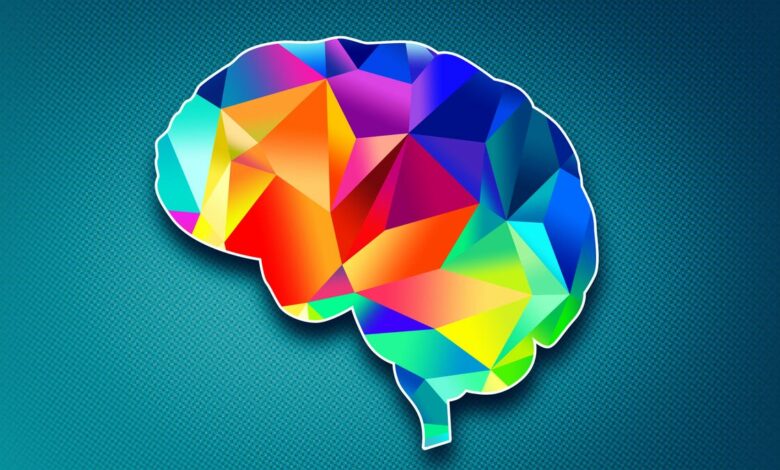4 Hormones That Help You Hack Your Happiness and Prevent Burnout




We’re entering that time of year where burnout hits. Whether you’re busy, tired, or feeling low on motivation, we’ve all been there. That doesn’t mean you have to stay there. While you can’t control everything that happens to you, you can work purposefully to increase the chemicals in your brain that are associated with happiness.
Four major hormones trigger feelings of happiness. If you understand these chemicals and how they work, you can find ways to boost their production and get yourself in the mood you’ve been looking for.
To explain exactly how these “happiness” chemicals work, I spoke with Loretta Breuning, founder of the Inner Mammal Institute and author of Habits of a Happy Brain.
Happy Chemicals: The Secret to a Happy Brain
Almost everything that makes you feel “happy” is linked to one of the four happiness hormones: dopamine, serotonin, endorphins, and oxytocin. Here are a few ways you can boost them naturally.
Dopamine
The hormone Dopamine is associated with motivation and reward. That’s why you feel good when you set an exciting or important goal, and why it feels good to achieve that goal. On the other hand, if you have low dopamine levels (what experts say can occur with depression), it may explain feelings of decreased motivation or loss of interest in something you used to enjoy.

By immersing yourself in a hobby or sport, you increase the production of dopamine.
“The approach of a reward triggers dopamine. When a lion approaches a gazelle, her dopamine levels rise and the energy she needs to hunt is released. Your ancestors released dopamine when they found a water hole,” Breuning says. “The anticipation of a reward triggers a good feeling in the mammalian brain and releases the energy you need to reach the reward.”
How to Increase Dopamine
Some not so healthy habits increase dopamine such as drink caffeineeating sugar or using certain recreational drugs. You can find ways to increase this hormone without turning to potentially unhealthy or addictive substances.
“Embrace a new goal and take small steps toward it every day. Your brain rewards you with dopamine every time you take a step. The repetition builds a new dopamine pathway until it’s big enough to compete with the dopamine habit you’re better off without,” Breuning says.
You may have already set goals around your career, work, or how much money you want to make. Don’t forget about personal goals. Devoting yourself to a rewarding hobby or sport can be just as fulfilling as professional goals. Don’t just set a few big goals that will take longer to complete — set short-term goals too, to help you stay motivated.
“Set a short-term, long-term, and medium-term goal so that you are always moving toward one goal when another goal is blocked. Focus on things you have control over and don’t wait for others to set your goals for you,” says Breuning.
Serotonin
Serotonin is a neurotransmitter that plays a role in mood, but also helps regulate other functions in your body such as digestion, sleep and bone health. When it comes to happiness and how you feel every day, serotonin is important for reducing depression and regulating anxiety.
How to Increase Serotonin
“Confidence triggers serotonin. Monkeys try to outdo each other because it boosts their serotonin. Humans often do the same thing,” Breuning says. You’ve probably never thought about confidence on a neurochemical level, but Breuning says your serotonin levels can take a hit if you don’t put confidence first.
If you are stuck in a cycle of low self-esteem or if others have undermined your self-confidence, it can be difficult to rebuild it. It may sound strange, but don’t ignore your need for respect and status.
“You can develop your belief in your own worth. If you focus on your losses, your serotonin levels will drop, even if you’re a rock star or a CEO. You can develop the habit of focusing on your victories. Your serotonin levels will suffer if you don’t,” Breuning says.
Besides focusing on what you have accomplished in life, you can also build self-confidence in other ways. One way to do this is by exercising or adopting a new exercise routinewhich will help to build your confidence if you keep at it. Another thing you can try is to find ways to get out of your comfort zone every day. Every day that you challenge yourself to adapt to something new, even if it feels uncomfortable at first, you build more confidence.
Oxytocin
Oxytocin is sometimes called the “love” hormone and is associated with how people bond and trust each other. Certain activities such as kissing, cuddling, and having sex can trigger the release of oxytocin in the brain.
It explains why you feel happy when you pet or cuddle your pets. It is important in childbirth because oxytocin helps the mother’s uterus contract to bring the baby into the world, and oxytocin also plays a role in breastfeeding. It also helps parents bond with a baby after birth.

Playing or cuddling with a pet can give you a big oxytocin boost.
How to Increase Oxytocin
You can stimulate oxytocin by being physically intimate with others. In addition to the physical aspect, it is important to know that there is an emotional connection to how oxytocin is released.
“Social trust is what triggers oxytocin. If you hug someone you don’t trust, it doesn’t feel good. Trust comes first. You can build social trust by taking small positive steps toward people,” Breuning says.
You can reach out to a friend or contact you want to get to know better. Send someone a thank-you note or a card to let them know you’re thinking of them. “Take a small step toward someone every day and they may do the same thing months later, but if you keep doing it, you’re building networks of trust,” Breuning says.
Endorphins
Endorphins are notoriously associated with exercise: it’s the phenomenon that explains the runner’s high or post-workout endorphin “rush.” They act as “natural painkillers” that help minimize pain and maximize pleasure. This chemical experience may explain why a runner can continue a race with an injury and not notice it until it’s over.
“In nature, it helps an injured animal escape from a predator. It helped our ancestors seek help when they were injured. Endorphins evolved for survival, not for partying. If you were high on endorphins all the time, you’d be touching hot stoves and walking on broken legs,” Breuning explains.

Laughter is a great way to naturally release more endorphins.
How to Boost Endorphins
Laughter is a way to naturally increase endorphins; just like food dark chocolate, watch your favorite drama on Netflix, to train And to meditate.
Endorphins are produced in response to pain, but that doesn’t mean you should look for ways to harm yourself (like over-exercising or pushing yourself) just to feel good.
“Hurtting yourself to stimulate endorphins is a poor survival strategy. Fortunately, there are better ways: laughing and stretching. Both of these shake your insides in irregular ways, leading to moderate wear and tear and moderate endorphin flow,” she says.




